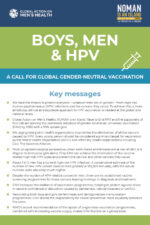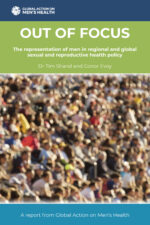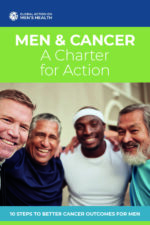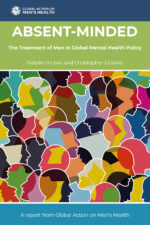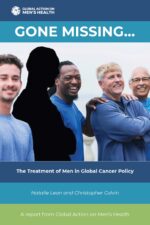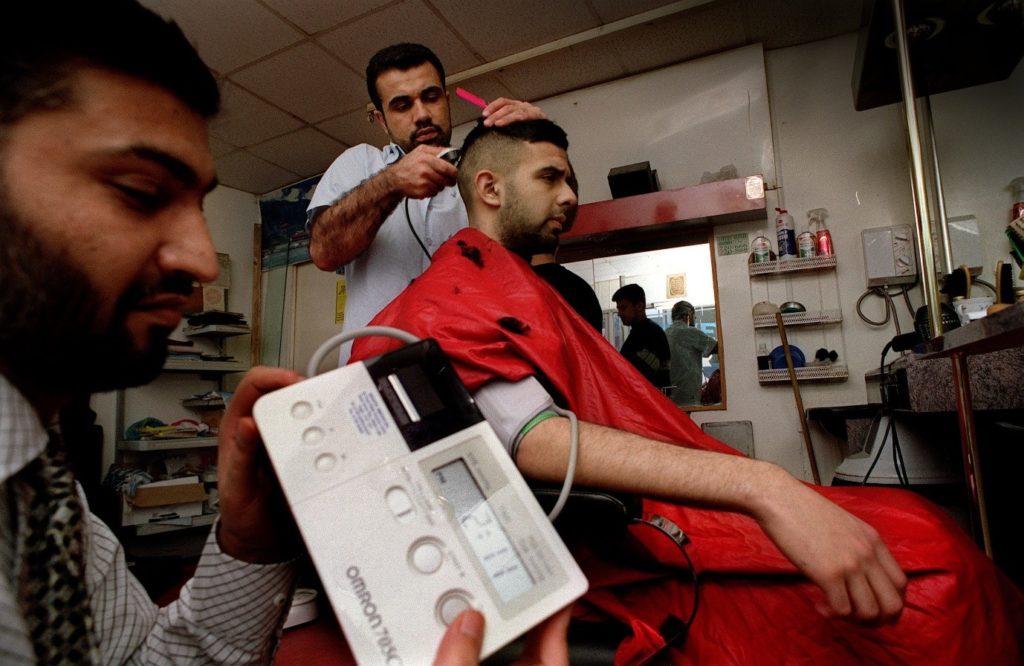Associate Members
The following are ASSOCIATE MEMBERS of GAMH. Details of membership here.
AMEGERWA (Action of Men Engage for Gender Equality in Rwanda)
AMEGERWA is a Rwandan NGO whose vision is a world free from all forms of gender-based violence (GBV) through peaceful and equitable sharing of roles and responsibilities. Its objectives are to promote peace and security in families, to promote gender equality and GBV prevention through engaging men as allies and partners of women, to increase women’s participation in household daily life and community development by fighting masculine threats that hinder women’s participation in development, to reinforce men’s and women’s partnership in social economic development, to provide psychosocial assistance to women and men who are victims of gender-based violence, and to advance sexual and reproductive health rights and positive fatherhood.
More information about AMEGERWA can be found here.
The Centre for Men’s Health Aotearoa New Zealand
The Centre for Men’s Health Aotearoa New Zealand is an interdisciplinary centre established at the University of Otago, with the collaboration of an interprofessional network of researchers and expert lay representatives. The vision of the centre is to promote optimal health and wellbeing outcomes for all men living in Aotearoa New Zealand and to be recognised nationally as leaders in men’s health and wellbeing. The centre also seeks to provide leadership in advancing the men’s health perspective and to enhance all aspects relating to the health and wellbeing of the diverse population of men living in Aotearoa New Zealand.
The Centre for Men’s Health emphasises the need to consider the health and wellbeing of men/tane within the context of their cultural background, their age and sexual orientation, whether they are men who live with disabilities, are homeless or are migrants.
The key aim of the Centre of Men’s Health New Zealand is to undertake and support research that impacts the health and wellbeing of all men/tane in Aotearoa New Zealand and to host an annual Men’s Health Colloquium to enable the dissemination of national and international men’s health research and foster academic and clinical networks.
More information about the Centre for Men’s Health Aotearoa New Zealand can be found here.
Centre for Development and Livelihood Initiatives (Malawi)
The Centre for Development and Livelihood Initiatives (CEDELI) in Malawi is a local NGO focusing on advocacy in health rights and other human rights issues. Its mission is to advocate for more resources in health programmes and also for citizen participation in health interventions, sexual reproductive health rights, including men’s health interventions and rights.
CHAPS: The Men's Health Charity (UK)
CHAPS is a men’s health charity founded in Colchester, UK in 2000. Whilst promoting all issues surrounding men’s health, it has a particular focus on prostate cancer. The Charity has three main functions: (1) It runs charitable events for screening for prostate cancer (PSA tests), frequently in collaboration with the NHS Health Check Teams and other healthcare providers across Essex and Suffolk; (2) It runs prostate cancer screening events in many locations across East Anglia, London, the Home Counties and also for commercial companies in England and Scotland; and (3) It acts nationally as a catalyst co-ordinating the efforts of other national charities and providers in campaigning for better and earlier diagnosis of prostate cancer. In support of these objectives the Charity maintains an informative website on men’s health in general and prostate cancer in particular, for which it can provide extensive support and patient information.
More information about CHAPS can be found here.
Elderly People Association (Malawi)
Elderly People Association is a non-profit, not-partisan registered organization that works to assist the destitute, poor and isolated older persons and disadvantaged children throughout Malawi regardless of their race, colour, creed or religion. It was founded in 1997 and is an indigenous charitable organization entirely dependent on local and international fundraising activities that allows it to implement and sustain its short- and long-term efforts.
The Freemasons Foundation Centre for Men’s Health (Australia)
The Freemasons Foundation Centre for Men’s Health at the University of Adelaide (est.2007) is a centre of excellence in men’s health research. The Centre brings together, trains and supports a network of researchers spanning the three South Australian universities, the South Australian Health and Medical Research Institute, other research institutes and health services. This network extends to collaborators nationally and internationally. The Centre aims to advance understanding of conditions that contribute the most to ill-health, loss of independence and workforce participation and premature death. By translation of its research into public knowledge and health policy and practice, the Centre aims to reduce the long-standing differences between the sexes and between different sub-populations of men, in health and health outcomes.
The Centre’s research programmes transect three themes: preventative health and health services, clinical and population health with a focus on chronic disease, and basic science with a focus on reproductive health and prostate cancer. The Centre promotes a transdisciplinary and social determinants approach to its research, recognising the heterogeneity of biological, socio-cultural, economic and political factors influencing health and social well-being.
More information about the Freemasons Foundation Centre for Men’s Health can be found here.
Healthy Male (Australia)
Healthy Male is a national organisation, established in 2000. It provides information on men’s health and facilitates action in collaboration with others, advocates for change, empowers men and boys to take action on their health, builds the capabilities of the health system and workforce, and prioritises efforts to close the health and wellbeing gaps in specific groups. Healthy Male is working towards its vision of generations of healthy Australian men.
Healthy Male aims to make the information it provides available to everybody, regardless of gender, age, education, sexual orientation, religion or ethnicity. To do this, it collaborates with Australia’s leading researchers, specialists, clinicians and educators to develop information that fills the gaps in men’s health.
More information about Healthy Male can be found here.
Iniciativa de Saude Masculina (Mozambique)
The Men’s Health Initiative (Iniciativa de Saude Masculina) is a platform for men’s engagement in protecting health and promoting the well-being of men and their families. ISMA works to improve men’s access to health care, to promote sexual and reproductive health for young men and to undertake research and advocacy to mobilize evidence on men’s health and influence policymakers.
More information about Iniciativa de Saude Masculina can be found here.
Keundeleza Afrika (Uganda)
Kuendeleza Afrika is a NGO founded in 2012 with the aim of transforming the lives of young people. In 2017, the organisation diversified its operations and focused on education, health and agriculture projects that help to empower people and communities and create a healthy, skilled and productive society.
Male Reproductive Health Initiative (MRHI)
MRHI was launched in 2018 and is a global collaboration of more than a dozen key opinion leaders in research, medicine, and patient support groups, from the Americas, Australia, the United Kingdom and Europe. MRHI’s mission is to advance the science and practice of male reproductive medicine by promoting and contributing to high-quality research in both basic and clinical science, forging collaborative relationships with professional societies, and through advocacy of male reproductive health to all stakeholders including patient support groups, funding agencies, non-for-profit organizations, industry and the public.
More information about the Male Reproductive Health Initiative can be found here.
Men 4 Equality Trust (Zimbabwe)
Men 4 Equality Trust is a Zimbabwean organisation whose purpose is to establish a critical mass of boys and men who augment the gains of gender mainstreaming. Part of its work is around reducing inequalities by encouraging men and boys to be champions of gender equality in all its aspects: politically, socially, economically, and in any other facet. .
More information about the Men 4 Equality Trust can be found here.
Men's Development Network (Ireland)
The MDN is a developmental and consultative organisation that works on four levels; locally, regionally, nationally and internationally. Building on all men’s humanity and ability to connect, MDN works to better men’s lives by addressing the social determinants, social conditioning, gender conditioning and gender-based role stereotypes that cause harm to men and women. MDN works from the belief that a society where men and women are free from the negative effects of these factors will lead to better lives for both sexes.
Through its Men’s Health Programme, MDN has been actively involved in promoting key health and wellbeing themes with and on behalf of men, through its range of community development work and training across Ireland. The focus of all of all its work is based on a strengths/salutogenic orientation towards awareness raising, signposting and supporting positive behaviour change.
More information about MDN can be found here.
Men's Health Trust (New Zealand)
The Men’s Health Trust NZ is a registered charity which has been in action since 2007 promoting good health for the men of New Zealand. The Trust wants all men to make good health choices, to take action to live healthier every day, and to have easy access to health information that relates directly to them. It wants to reduce illness and disease caused by being overweight and making poor diet choices. It wants to save men from dying of illnesses that could have been cured if they had taken action sooner.
The Trust provides health information for men, connects men with support agencies, funds men’s health scholarships, runs workplace health talks, and creates inspiring health campaigns. It works collaboratively with other health organisations to provide the best information available.
More information about the Men’s Health Trust can be found here.
Ndola Nutrition Organisation (Zambia)
The Ndola Nutrition Organisation in Zambia is a leading humanitarian, non-profit relief and development agency. It was was founded as Ndola Nutrition Group in 1987 before transitioning to Ndola Nutrition Organisation in 2010. The organisation is registered with the Registrar of Societies in Zambia and was validated in 2019 and 2015 as a charity under the Charities Aid Foundation of UK and Southern Africa respectively. It is committed to fighting poverty, HIV/AIDS and social injustice through male involvement and participation strategies in Zambia.
More information about Ndola Nutrition Organisation can be found here.
Outreach Scout Foundation (Malawi)
The Outreach Scout Foundation (OSF) in Malawi is a NGO that exists to work and advocate for improved conditions for ultra-poor/vulnerable women, girls, men and boys in rural communities. OSF has a particular interest in prostate cancer and is working to raise awareness at the community level. The organization is also strategizing the formation of Men Against Prostate Cancer Clubs in local communities.
More information about Outreach Scout Foundation can be found here.
Partnership for Male Youth (USA)
The Partnership for Male Youth’s (PMY) mission in the USA is to identify and address the unique and unmet health care needs of adolescent and young adult (AYA) males, or males between the ages of 10 and 27. PMY is a pioneer and the only US national organization with this sole mission and focus. Founded in 2013, its boards of directors and advisors include leading physicians, social workers, psychologists and other experts on AYA male health. The Partnership is composed of over 25 national US organizations and has representation from six US federal agencies. PMY’s goal is to move beyond a strictly medical model to address the social determinants of health as defined by the US Centers for Disease Control and Prevention.
Since 2013, PMY has compiled the first comprehensive database of all known scientific literature pertaining to AYA male health (it is available in open access online format), published a weekly newsletter that contains reporting on scientific and lay literature relevant to AYA male health, developed and distributed an adolescent male health self-assessment tool and companion clinicians’ guide to assessing adolescent male health risks, and is currently planning organising the 2018 National Summit on Adolescent and Young Adult Male Health, a groundbreaking conference that will be held in Washington, DC in the spring of 2018. Information on that summit is available here.
More information about Partnership for Male Youth can be found here.
PERSBEH (Canada)
Le Pôle d’expertise et de recherche en santé et bien-être des hommes (PERSBEH) / The Center of Expertise and Research on Men’s Health and Wellbeing (Canada)
PERSBEH is is funded by the Quebec Department of Health and Social Services as a part of the Ministry’s Action Plan on Men’s Health and Wellbeing 2017-2022. It is attached to the University Institute on Frontline Health and Social Services (IUPLSSS) and aims to develop a true synergy between researchers in the field of men’s health and well-being and between these researchers and practice settings, both in the health and social services network and in the community network, in order to understand the realities that men face and to support the adaptation of services to meet their needs better. To do so, it is particularly interested in developing empirical studies applicable to front-line practice settings, promoting research that contributes to greater gender equality in society, and taking into account the diversity of masculinities.
More information about PERSBEH can be found here.
UNASCAD (Haiti)
UNASCAD (Union des Amis Socio Culturels d’Action en Developpement) is a Haitian civil society organisation that works on sustainable development, protection of the environment, disaster reduction, education, health and gender issues.
Western Sydney University Centre for Male Health (Australia)
Western Sydney University Centre for Male Health (formerly known as The Men’s Health Information and Resource Centre), based in Australia, explores men’s and boys’ health and wellbeing in terms of the factors in society and life that build or undermine this health. The Centre focuses particularly on the health status of marginalised and disadvantaged males – this includes Indigenous men, unemployed men, separated men, incarcerated men, and other males who may find themselves at risk of increased distress and therefore poorer health outcomes. The Centre coordinates Men’s Health Week in Australia and moderates the Mengage website. The Centre prioritises partnership research that helps to build evidence on what works in male health and suicide prevention, and also supports students to undertake undergraduate and postgraduate studies.
More information about the Centre can be found here.
YORGHAS Foundation (Malawi)
The Yorghas Foundation is a Polish, non-profit, non-governmental organization dedicated to humanitarian and development aid all over the world. It works in several African countries, including Malawi. Its goal is a world free from preventable deaths of women and their children, where all people have equal opportunities for medical care, education, development and a decent life regardless of gender, age, sexual orientation, ethnicity, race or religion.
More information about the Yorghas Foundation can be found here.
